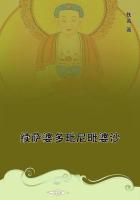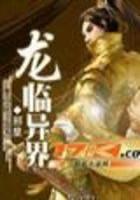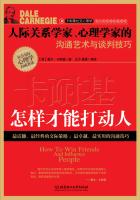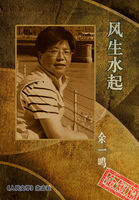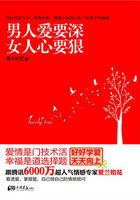Rolf, son of Rognwald,[3] ([3] Dahlmann, ii. 87.) was lord of three little islets far north, near the Fjord of Folden, called the Three Vigten Islands; but his chief means of living was that of sea robbery; which, or at least Rolf's conduct in which, Harald did not approve of. In the Court of Harald, sea-robbery was strictly forbidden as between Harald's own countries, but as against foreign countries it continued to be the one profession for a gentleman; thus, I read, Harald's own chief son, King Eric that afterwards was, had been at sea in such employments ever since his twelfth year. Rolf's crime, however, was that in coming home from one of these expeditions, his crew having fallen short of victual, Rolf landed with them on the shore of Norway, and in his strait, drove in some cattle there (a crime by law) and proceeded to kill and eat; which, in a little while, he heard that King Harald was on foot to inquire into and punish; whereupon Rolf the Ganger speedily got into his ships again, got to the coast of France with his sea-robbers, got infeftment by the poor King of France in the fruitful, shaggy desert which is since called Normandy, land of the Northmen; and there, gradually felling the forests, banking the rivers, tilling the fields, became, during the next two centuries, Wilhelmus Conquaestor, the man famous to England, and momentous at this day, not to England alone, but to all speakers of the English tongue, now spread from side to side of the world in a wonderful degree. Tancred of Hauteville and his Italian Normans, though important too, in Italy, are not worth naming in comparison. This is a feracious earth, and the grain of mustard-seed will grow to miraculous extent in some cases.
Harald's chief helper, counsellor, and lieutenant was the above-mentioned Jarl Rognwald of More, who had the honor to cut Harald's dreadful head of hair. This Rognwald was father of Turf-Einar, who first invented peat in the Orkneys, finding the wood all gone there; and is remembered to this day. Einar, being come to these islands by King Harald's permission, to see what he could do in them,--islands inhabited by what miscellany of Picts, Scots, Norse squatters we do not know,--found the indispensable fuel all wasted.
Turf-Einar too may be regarded as a benefactor to his kind. He was, it appears, a bastard; and got no coddling from his father, who disliked him, partly perhaps, because "he was ugly and blind of an eye,"--got no flattering even on his conquest of the Orkneys and invention of peat. Here is the parting speech his father made to him on fitting him out with a "long-ship" (ship of war, "dragon-ship," ancient seventy-four), and sending him forth to make a living for himself in the world: "It were best if thou never camest back, for I have small hope that thy people will have honor by thee; thy mother's kin throughout is slavish."
Harald Haarfagr had a good many sons and daughters; the daughters he married mostly to jarls of due merit who were loyal to him; with the sons, as remarked above, he had a great deal of trouble. They were ambitious, stirring fellows, and grudged at their finding so little promotion from a father so kind to his jarls; sea-robbery by no means an adequate career for the sons of a great king, two of them, Halfdan Haaleg (Long-leg), and Gudrod Ljome (Gleam), jealous of the favors won by the great Jarl Rognwald. surrounded him in his house one night, and burnt him and sixty men to death there. That was the end of Rognwald, the invaluable jarl, always true to Haarfagr; and distinguished in world history by producing Rolf the Ganger, author of the Norman Conquest of England, and Turf-Einar, who invented peat in the Orkneys. Whether Rolf had left Norway at this time there is no chronology to tell me. As to Rolf's surname, "Ganger," there are various hypotheses; the likeliest, perhaps, that Rolf was so weighty a man no horse (small Norwegian horses, big ponies rather) could carry him, and that he usually walked, having a mighty stride withal, and great velocity on foot.
One of these murderers of Jarl Rognwald quietly set himself in Rognwald's place, the other making for Orkney to serve Turf-Einar in like fashion. Turf-Einar, taken by surprise, fled to the mainland; but returned, days or perhaps weeks after, ready for battle, fought with Halfdan, put his party to flight, and at next morning's light searched the island and slew all the men he found. As to Halfdan Long-leg himself, in fierce memory of his own murdered father, Turf-Einar "cut an eagle on his back," that is to say, hewed the ribs from each side of the spine and turned them out like the wings of a spread-eagle: a mode of Norse vengeance fashionable at that time in extremely aggravated cases!
Harald Haarfagr, in the mean time, had descended upon the Rognwald scene, not in mild mood towards the new jarl there; indignantly dismissed said jarl, and appointed a brother of Rognwald (brother, notes Dahlmann), though Rognwald had left other sons. Which done, Haarfagr sailed with all speed to the Orkneys, there to avenge that cutting of an eagle on the human back on Turf-Einar's part.
Turf-Einar did not resist; submissively met the angry Haarfagr, said he left it all, what had been done, what provocation there had been, to Haarfagr's own equity and greatness of mind. Magnanimous Haarfagr inflicted a fine of sixty marks in gold, which was paid in ready money by Turf-Einar, and so the matter ended.





